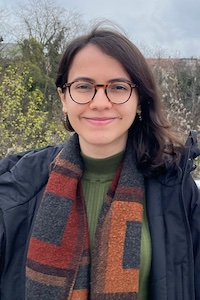Beyond the Surface: Leveraging NLP to Map Global Natural Hazard Impacts
On 04.07.2024 at 11 a.m., the 27th lecture of the Living Lab lecture series took place. In this talk, Taís Maria Nunes Carvalho from UFZ talked about Beyond the Surface: Leveraging NLP to Map Global Natural Hazard Impacts.
Beyond the Surface: Leveraging NLP to Map Global Natural Hazard Impacts
Understanding how natural hazards such as floods, droughts, and storms evolve into disasters requires comprehensive and accurate impact data. Recent advancements in natural language processing (NLP) and large language models (LLMs) offer promising tools to address the limitations of traditional data collection methods.
This lecture introduces a novel approach to creating a global dataset of natural hazard impacts by analyzing the full text of peer-reviewed articles. By leveraging the capabilities of LLMs and Retrieval-Augmented Generation, I will demonstrate how we can extract and structure both quantitative and qualitative data across various impact classes from unstructured text.
Living Lab Lecture Series
The Living Lab Lecture Series gives you an in-depth insight into the many research topics of ScaDS.AI Dresden/Leipzig. From Natural Language Processing to Ethics and Moral Code in AI, a great variety of topics are discussed. You can join our lectures every first thursday of the month or watch them on YouTube afterwards. If you have ideas for topics to discuss in the future, please let our Living Lab team know. We suggest for you to regularly check our event calendar, to never miss out on upcoming lectures or other interesting events organized by or in cooperation with our center.
You can reach the permanent room for all lectures here: https://tud.link/i8zf
The room will be accessible 5 minutes before the start of the lecture.
The participation is free for everyone.
No! Not at all. One of our goals in the Living Lab lecture series is to familiarize everyone with these topics.
You just need an up-to-date browser such as Firefox, Google Chrome or Chromium. We would also recommend using headphones for better audio quality.
Not unless you would like to! In general, there is no need to have a camera or microphone to participate in the lecture.
Alongside joining the discussion with your camera and microphone, there is also the possibility to submit your question and comments as a written comment in the Chat section.
-
- Follow us on X: @Sca_DS
-
- Follow us on LinkedIn: ScaDS.AI Dresden/Leipzig
-
- Subscribe to our YouTube channel: https://www.youtube.com/channel/UCv7EDPwovn6T1iaMbhlpFjg
-
- Subscribe to our mailing list: https://mailman.zih.tu-dresden.de/groups/listinfo/livinglab




